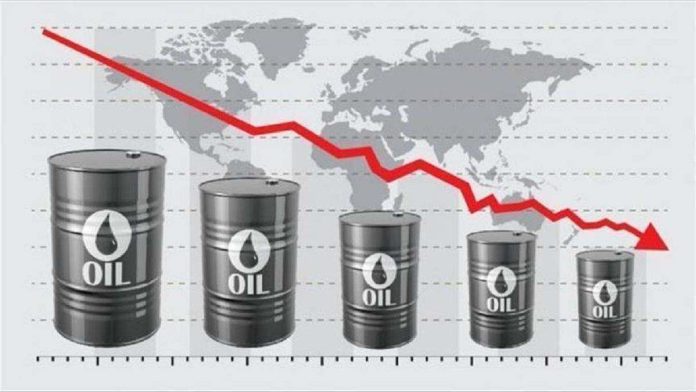Crude oil prices dipped on Wednesday as market sentiment remained cautious due to the announcement of U.S. reciprocal tariffs and an unexpected increase in crude inventories.
Brent crude fell by 0.4%, trading at $74.02 per barrel, down from $74.30 in the previous session. Meanwhile, the U.S. benchmark, West Texas Intermediate (WTI), dropped 0.4% to $70.66 per barrel from its prior close of $70.93.
President Donald Trump is set to unveil new reciprocal tariffs today, a move being referred to as “Liberation Day.” Reports indicate the White House is considering a 20% tariff on most U.S. imports, fueling concerns of a potential global trade war. White House spokesperson Karoline Leavitt confirmed that the tariffs would take immediate effect upon announcement.
The new trade measures have added uncertainty to the market, with investors worried about inflationary pressures and a slowdown in global economic growth. Meanwhile, the Institute for Supply Management (ISM) reported a drop in the Manufacturing Purchasing Managers’ Index (PMI) to 49 in March, signaling contraction in the sector.
Adding to market pressure, the American Petroleum Institute (API) reported an unexpected increase in U.S. commercial crude inventories, which rose by 6.04 million barrels last week—significantly higher than the anticipated 4.6 million barrel draw. Traders now await official data from the U.S. Energy Information Administration (EIA) for further confirmation.
Geopolitical developments are also influencing oil markets, particularly U.S.-mediated peace talks between Russia and Ukraine. President Trump has urged Russian President Vladimir Putin to negotiate an end to the conflict, stating, “I want to see him make a deal so we stop Russian and Ukrainian soldiers from being killed.”
While diplomatic progress has alleviated some supply concerns, Trump warned that failed negotiations could result in secondary sanctions on Russian oil. Additionally, he threatened Iran with additional tariffs unless it dismantles its nuclear program.
The combination of trade tensions, rising stockpiles, and geopolitical uncertainty continues to weigh on oil prices, although the risk of supply disruptions may limit further declines.













